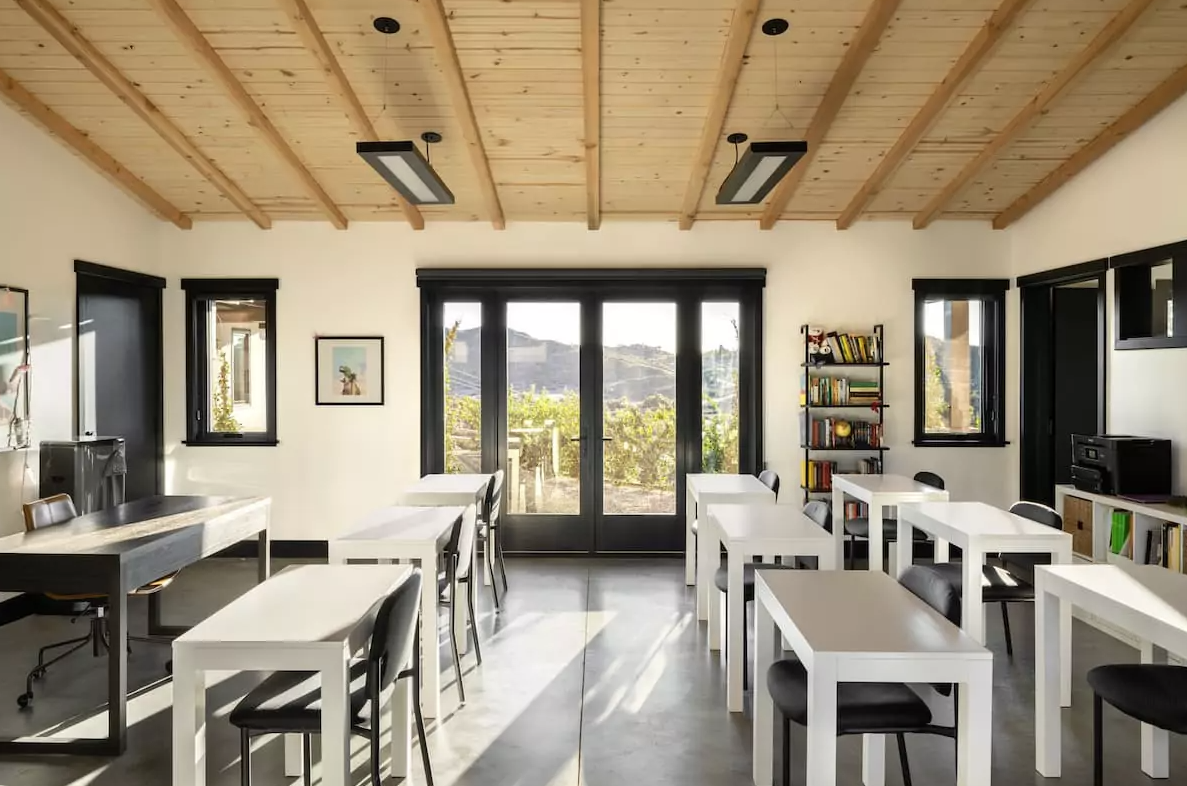What are the differences between a therapeutic boarding school vs residential treatment center? A therapeutic boarding school offers long-term education combined with therapy for behavioral and emotional issues, focusing on integrating academic progress with personal development. Conversely, a residential treatment center provides intensive, short-term psychiatric care for those with severe mental health issues, prioritizing stabilization and treatment over academic achievement. Both settings aim to support adolescents in overcoming challenges, but their approaches and durations differ.
Mental health issues can be debilitating. Personality disorders, substance use disorders, mood disorders, and anxiety disorders can result in dangerous or harmful behaviors, extreme irritability, or even physical illness and injury.
Teens who need constant support and long-term care while recovering from an addiction or while seeking treatment for a severe mental health issue may spend anywhere from a few months to over half a year in a clinical or residential treatment setting. During this time, they need to keep up with their academic responsibilities and continue to spend time studying. Therapeutic boarding schools and residential treatment facilities may fulfill these requirements for teens but go about doing so in very different ways.
In this article, we explore the main differences between a therapeutic boarding school vs residential treatment center for teens.
Treatment Options for Troubled Teens
Millions of teens struggle with mood disorders, anxiety disorders, personality disorders, and substance use disorders. While many successfully seek treatment through outpatient programs, counseling, therapy, and medication, some require a more comprehensive treatment plan that addresses severe symptoms, such as self-harm, suicidal ideation, or repeated antisocial behavior.
Residential treatment facilities help people isolate themselves from factors that may be triggering or aggravating their symptoms in their daily lives while also giving them a supportive and safe environment to focus on self-improvement and recovery.
For teens, these residential treatment facilities also provide a way to interact with others who have had similar experiences while continuing their studies through an accredited curriculum within the treatment center.
Therapeutic boarding schools are another option for teens who might benefit from the rigidity and self-sufficiency that a boarding school environment might provide but with a greater focus on education and academics and less time spent in intensive therapy or group therapy.
Therapeutic Boarding School vs. Residential Treatment Center
Therapeutic boarding schools are educational facilities that set themselves apart from other boarding schools by providing more opportunities for counseling and mental health support. They typically feature a lower student-teacher ratio and on-campus facilities for experiential therapy or therapeutic activities, such as equine therapy, adventure therapy, yoga, or mindfulness training.
Residential treatment centers are inpatient facilities that accommodate teens in a homely environment. They have a low teen-to-staff ratio and are carefully supervised while in treatment.
Here’s what you need to know about the differences between a therapeutic boarding school vs residential treatment center.
Differences in Treatment Options
One of the primary differences when comparing a therapeutic boarding school vs. a residential treatment center is the breadth of the facility’s treatment options and the availability of certain modalities. Therapeutic boarding schools first offer therapeutic services for students who need them.
Residential treatment centers are accredited treatment facilities for mental health issues and addiction disorders. They may offer a day school program for teens who seek to continue preparing for college or who want to keep up with their peers while out of school.
As such, therapeutic boarding schools may offer individualized therapy and counseling, as well as certain forms of experiential therapy, while residential treatment centers will offer a lower ratio of teens to trained staff, a wider breadth of treatment modalities and forms of therapy, and a daily program that is primarily dedicated towards each teen’s therapeutic and treatment goals, rather than their academics.
Understanding Therapeutic Boarding Schools
A therapeutic boarding school provides psychological support while teens attend classes and focus on their next academic grade. Therapeutic boarding schools still act like boarding schools and have an enrollment process and curriculum. However, most therapeutic boarding schools utilize a rolling enrollment process rather than following a standard school year.
Many therapeutic boarding schools specialize in helping teens with learning disabilities or mental health conditions that double as neurodevelopmental problems, such as ADHD. Some schools specialize in specific conditions and provide care specific to those conditions.
The dorm environments in therapeutic boarding schools are also designed to be more homely and provide a more relaxing and social atmosphere than the rigidity and uniformity of a traditional dorm. Most therapeutic boarding schools allow year-round admission rather than a normal school year. A student’s stay at a therapeutic boarding school ranges from a semester to at least a whole school year.
Understanding Residential Treatment Centers
A residential treatment center is an inpatient facility where people go for intensive psychiatric care. These are usually voluntary facilities, and many of them are designed to offer treatment for people with substance use problems and comorbid mental health conditions.
Residential treatment centers differentiate themselves from other inpatient facilities, such as psychiatric hospitals, by trading in a clinical setting for a “residential” or homely setting. Residential facilities are usually located in suburban or rural areas, away from the hustle and bustle, and focused on recovery and healing.
Like most inpatient facilities, a typical stay at a residential treatment center would be limited to one or two months.
Choosing the Right Option for Your Teen
When choosing between a therapeutic boarding school vs. residential treatment center, it’s essential to determine what level of care your teen requires. Therapeutic boarding schools provide an academic environment where teens can receive more support for their mental health challenges over the semester.
A residential treatment center offers a dedicated treatment plan for mental health conditions. It is usually the better fit for teens who require more supervision and care and need an intensive short-term treatment plan rather than a more accommodating school environment.
Residential Treatment at Visions Adolescent Treatment Centers
Teens struggling with severe mood disorders, personality disorders, or substance use disorders may not do well in a traditional school setting.
Seeking a teen treatment center that offers a residential treatment center for teens can help your teen better manage their symptoms without neglecting their schoolwork and better prepare them for the years to come.
Visions Adolescent Treatment Centers focus on providing care for teens needing treatment in the greater Los Angeles area.
Conclusion
Residential treatment centers offer a shorter stay, focus more on treatment, and often have fewer attending teens than a therapeutic boarding school. Furthermore, treatment at a residential treatment center is covered under different health insurance policies, while attending a therapeutic boarding school is paid entirely out of pocket.
If your teen needs more supervision, a treatment-centered environment, and does not respond well to outpatient treatment, then a residential treatment center may be the right fit for them. Give us a call today at 1-818-889-3665 for a free assessment.








